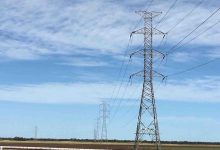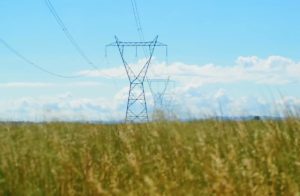The Greens have proposed a new policy platform that would see a new government-owned not-for-profit energy retailer created in a bid to break the dominance of the big “gen-tailers” that have pocketed billions of dollars of profits between them.
Greens leader Richard di Natale outlined the policy at a speech to the National Press Club on Wednesday:
We need to put people before profit, and our plan to re-establish a state-owned electricity retailer called Power Australia is going to do exactly that,” di Natale said.
“You don’t need to be an expert to see that big private companies, whose legal requirement is to maximise their own profits, should not also be handed the responsibility of looking after our health, our education, or even our ability to turn the lights on.
“A public retailer, along with community owned players, would provide the competition needed to end price gouging and super profits, while pushing down prices. And it would kick-start the next wave of renewable energy projects, that the public desperately wants to see built.”
The question should be asked: Why not use Snowy Hydro? It is already government-owned, and a major player (fourth biggest) in the energy market. Turning it into a NFP (not-for-profit), or NFQSMP (not-for-quite-so-much-profit) might have a profound influence on the market.
There is a precedent for this. The Queensland government early last year directed its state-owned generators to change their bidding practices, and not game the market to the extent they had.
The effect has been substantial. Wholesale electricity prices in Queensland have fallen substantially – from rivalling South Australia in having the highest wholesale prices in the country, to having nearly the lowest.
The Queensland government is also looking at creating a new competitor, a “CleanCo” energy company that would house all its renewable energy functions.
The former South Australia Labor government was green with envy, and ambition. It would have loved to own its generators as it dealt with a market that was dominated by just a few players, and often expressed regret that it did not own its own energy company, and spent a lot of time trying to introduce competition to the market.
Even the federal Coalition government – which bought out Snowy Hydro from the NSW and Victoria state governments, ostensibly to facilitate the building of Snowy 2.0 – is partial to intervention, threatening all sorts of action if the energy giants don’t lower prices, or dare to close down one of their “fair dinkum” power generators.
The big generators know that the game is up as far as gaming goes. Or at least say that they know.
AGL, fresh from record profits in the last year, admitted at its annual general meeting that such high prices for consumers “are not sustainable”, but no retailer – apart from some initiatives focused on small groups – is proposing any substantial changes.
And AGL, being a listed company, has an obligation to get as much out of their clients as they can, so they can deliver as much as they can to their shareholders.
Which is why the Greens idea might have some merit. Its energy spokesman Adam Bandt points to the experience in Tasmania. where the government-owned retailer delivers some of the lowest retail prices of any state.
He might also point to the experience in the ACT, where the government has a half share in the local utility, cheap prices, and a 100 per cent renewable energy target that it will deliver well within the 2020 target.
Bandt also points to the experience in Victoria, where deregulated prices have resulted in the highest retail margins in the country.
The simple message is this: whether on the retail, the network, or the generation side, the opportunity is simply too great for the big companies to screw the consumer.
“Retailing electricity is a scam,” the Greens policy document says. “No matter which retailer you have, you are getting the same electrons delivered through the same network from the same generation mix.
“Private electricity retailers are ripping off Australians, while Labor and the Liberals profit from big corporate donations.”
Bandt says that to end the “failed experiment of privatisation,” the Greens are building on our policy of re-regulating retail prices, a paler version of which has since been adopted by both parties and in numerous cases overseas.
“Instead of continually hoping that super-profit making private corporations will bring down prices of their own free will, it is time to re-create a state-owned retailer required to work in the public interest by delivering an essential service at the lowest possible cost,” Bandt says.
Building a new retailer could be hard. On radio, di Natale suggested it might cost $85 million and then be self-funding, and wouldn’t need to spend big on marketing.
Not so sure about that: a couple of new retailers have emerged in recent years, but none have made such a big market share that they can influence prices, except for at the margin.
Which is why a change of focus for Snowy Hydro could be so irresistible, although you would have expected that if new energy minister Angus Taylor is as serious about getting prices down as he says he is, he would have already thought of that and sent instructions to the board. Obviously not.








